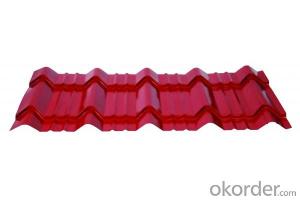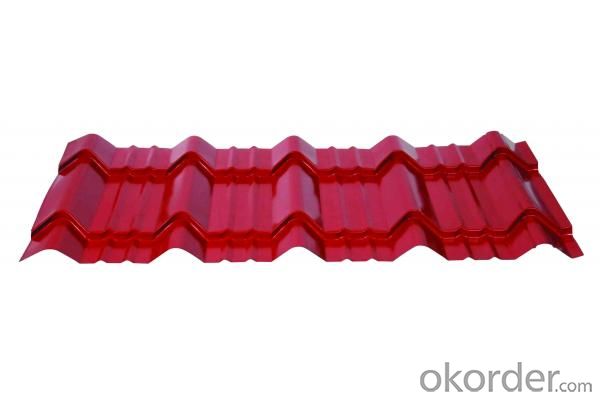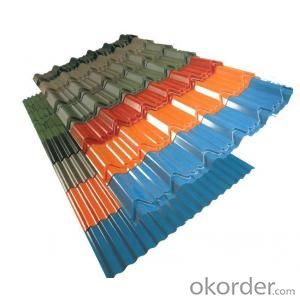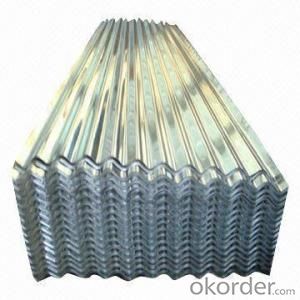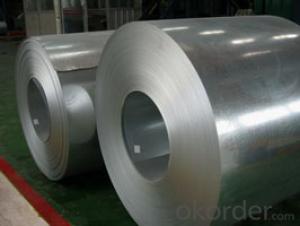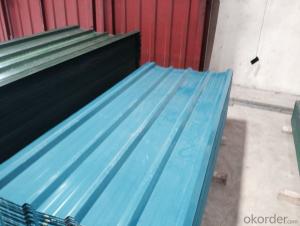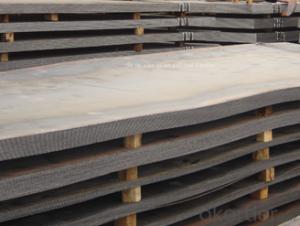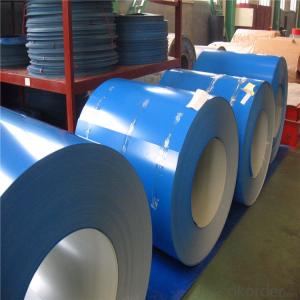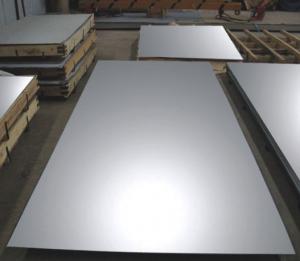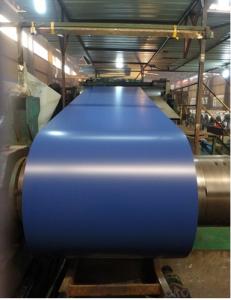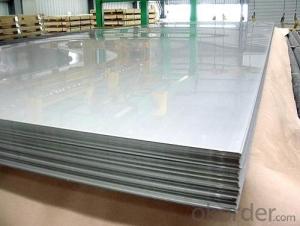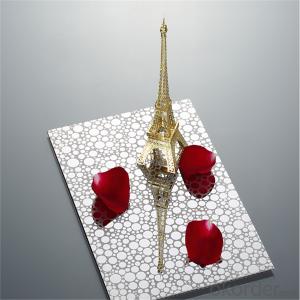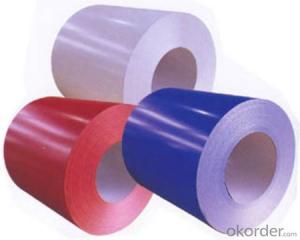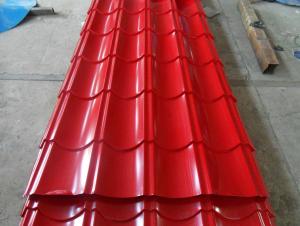Building Material 0.4mm Thick PPGI Metal Sheet
- Loading Port:
- Tianjin
- Payment Terms:
- TT OR LC
- Min Order Qty:
- 300 m.t.
- Supply Capability:
- 1500 m.t./month
OKorder Service Pledge
OKorder Financial Service
You Might Also Like
Building Material 0.4mm Thick PPGI Metal Sheet
Main Structure for Building Material
Standard: AISI, ASTM, BS, DIN, GB, JIS
Grade: Q235,Q195,Q255,Q275
Thickness: 0.12-0.80mm
Surface Treatment: Galvanized
Application: for building construction
Width: 600-1250mm
Length: by coil
ppgi width: 600mm-1250mm
ppgi thickness: 0.12mm-0.80mm
zinc coated: 30g-120g
ppgi face: 15-25u
ppgi back: 5-13u
Advantages:
Rich experiences------------- more than 13 years experience in steel industry.
Golden Supplier-----factory recognized ISO certificates etc.
Professional sales team------International trade teams for your service .
7/24 service for you------------all questions will be deal with within 24 hours .
Description for Building Material
PPGI Coil | Width | Thickness | Zinc Thickness | Face | Back |
600mm-1250mm | 0.12mm-0.8mm | 30-120g | 15-25u | 5-13u | |
Color | Raul color card , or your model color | ||||
Coil Weight | 3Ton--5Ton . | ||||
Packing | standard export packing . | ||||
Payment Terms | T/T, L/C ,Cash , West Union , Paypal | ||||
Trade Terms | FOB , CNF/CFR, CIF | ||||
Loading Port | Qingdao /Caofeidian /Tianjin ,China | ||||
Delivery Time | 25days base on order quantity | ||||
FAQ
WHY SHOULD YOU CHOOSE US:
Stable quality ----continous casting hot rolled production techenic, strictly quality control system.
Lower price -------Not the cheapest but the lowest price at the same quality .
Good service -----Satisfactory service within 24hours.
Delivery time ------15-25days for the mass production .
Discount---------------discount base on monthly large quantity purchase in long term.
Picture:
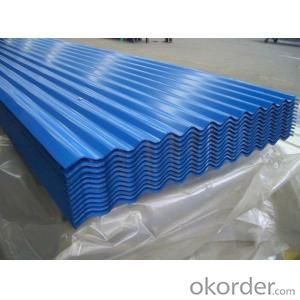
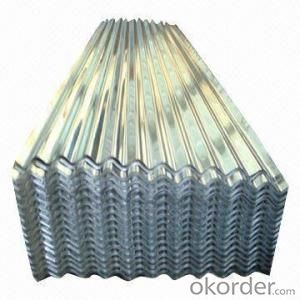
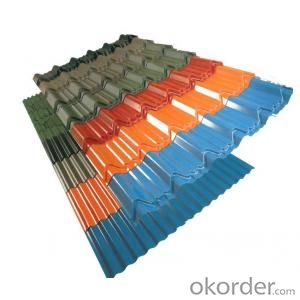
- Q: Can steel sheets be used for making staircases?
- Yes, steel sheets can be used for making staircases. Steel is a durable and strong material that can support heavy loads, making it suitable for constructing staircases. Steel sheets provide a stable foundation and structural integrity for staircases, ensuring safety and longevity. Additionally, steel can be easily shaped and molded into various designs, allowing for flexibility in staircase aesthetics. Whether it is a residential, commercial, or industrial setting, steel sheets are a popular choice for constructing staircases due to their strength, durability, and versatility.
- Q: What are the different types of surface treatments available for steel sheets?
- There are several different types of surface treatments available for steel sheets, each serving a specific purpose and offering unique benefits. 1. Hot-dip galvanizing: This is a widely used method where steel sheets are dipped in a bath of molten zinc, creating a protective coating that prevents corrosion. Hot-dip galvanizing provides excellent corrosion resistance and durability. 2. Electro-galvanizing: In this process, a layer of zinc is electrochemically deposited onto the steel sheets, creating a thin, uniform coating. Electro-galvanizing provides good corrosion protection and is often used for decorative purposes. 3. Powder coating: This surface treatment involves applying a dry powder onto the steel sheets and then curing it using heat. Powder coating provides a durable and attractive finish, offering protection against corrosion, UV rays, and chemicals. 4. Paint coating: Steel sheets can be coated with various types of paints, including epoxy, polyurethane, and polyester. Paint coatings provide aesthetic appeal and offer protection against corrosion and weathering. 5. Phosphating: This treatment involves applying a phosphate coating to the steel sheets, which enhances their corrosion resistance and improves paint adhesion. Phosphating is often used as a pre-treatment before painting or powder coating. 6. Chromate conversion coating: Also known as chromating or passivation, this treatment involves applying a thin layer of chromate onto the steel sheets. Chromate conversion coatings enhance corrosion resistance and improve paint adhesion. 7. Anodizing: Although primarily used for aluminum, anodizing can also be applied to steel sheets. This process involves creating an oxide layer on the surface of the steel, which enhances corrosion resistance and provides a decorative finish. 8. Pickling: This treatment involves immersing the steel sheets in an acidic solution to remove scale, rust, and other impurities. Pickling leaves the steel sheets with a clean, smooth surface, ready for subsequent treatments or processes. Overall, the choice of surface treatment for steel sheets depends on the intended application, desired appearance, and level of corrosion resistance required.
- Q: What is the tensile strength of steel sheets?
- The tensile strength of steel sheets typically ranges from 370 to 520 megapascals (MPa), depending on the grade and thickness of the steel.
- Q: Can steel sheets be used for roofing purposes?
- Indeed, roofing purposes can be served by steel sheets. In commercial and industrial buildings, as well as residential homes, it is common to find steel roofing sheets being utilized. These sheets are renowned for their ability to withstand harsh weather conditions, including rain, snow, and wind, thereby ensuring their longevity and durability. Moreover, steel sheets come in various profiles and finishes, enabling customization to cater to different architectural styles and design preferences. Furthermore, steel roofing possesses the advantages of being lightweight, fire-resistant, and often crafted from recycled materials, thereby presenting an environmentally friendly roofing alternative. In conclusion, the strength, versatility, and aesthetic appeal of steel sheets make them a favored option for roofing.
- Q: What are the different alloys used in steel sheet production?
- There are several different alloys used in steel sheet production, including carbon steel, stainless steel, galvanized steel, and high-strength low-alloy (HSLA) steel. Each of these alloys has specific properties and characteristics that make them suitable for different applications and industries.
- Q: How do you measure the thickness of steel sheets?
- The thickness of steel sheets can be measured using a tool called a micrometer or a caliper. These tools have a measuring scale or a digital display that allows you to accurately determine the thickness of the steel sheet by placing the tool on top of it and closing the jaws until they firmly grip the sheet. The measurement displayed on the tool will indicate the thickness of the steel sheet in millimeters or inches.
- Q: How do steel sheets perform in terms of air permeability?
- Steel sheets have low air permeability, meaning that they do not allow air to pass through easily.
- Q: How do steel sheets handle thermal conductivity?
- Steel sheets have high thermal conductivity, which means they can efficiently transfer heat. This property allows steel sheets to quickly and evenly distribute heat across their surface, making them suitable for various applications such as heat transfer systems, cookware, and building materials.
- Q: Can steel sheets be used for storage racks or shelving?
- Yes, steel sheets can be used for storage racks or shelving. Steel is a strong and durable material that can support heavy loads, making it ideal for storing items in racks or on shelves. Steel sheets can be easily fabricated and customized to fit specific storage needs, providing a versatile and reliable solution for organizing and storing various items.
- Q: Can steel sheets be used for industrial machinery or equipment?
- Yes, steel sheets can be used for industrial machinery or equipment. Steel is a durable and strong material that provides structural integrity and stability, making it suitable for various applications in the industrial sector. Steel sheets are commonly used in the fabrication of machine parts, equipment frames, and other components due to their high strength-to-weight ratio and resistance to wear and tear.
Send your message to us
Building Material 0.4mm Thick PPGI Metal Sheet
- Loading Port:
- Tianjin
- Payment Terms:
- TT OR LC
- Min Order Qty:
- 300 m.t.
- Supply Capability:
- 1500 m.t./month
OKorder Service Pledge
OKorder Financial Service
Similar products
Hot products
Hot Searches
Related keywords
